Podcast: Play in new window
Subscribe: Apple Podcasts | RSS | More

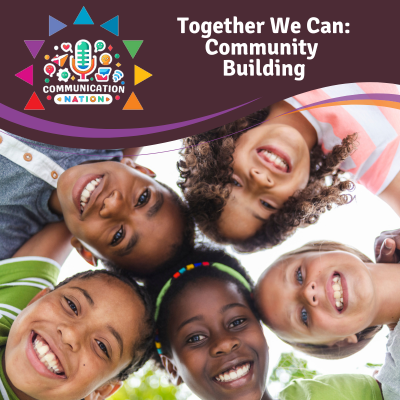
Together we can do anything, and this time on The Children’s Hour we explore teamwork, improv, and how playing games brings builds community. The Kids Crew gets a workshop in improvisation as a team building exercise. Then, we learn about games kids have played for thousands of years which helped create and sustain strong communities. Learn with us!
Find the full set of educator tools and activities at the bottom of this page
This is the fourth and final episode of Communication Nation, our series exploring how we communicate through media, languages, and community building. Today we are focusing on building our social world around us to form a team. We know that together we can do many things we cannot do by ourselves, like playing soccer or hide and go seek. In Together We Can, we’ll learn how games can help us practice working together for a common goal.
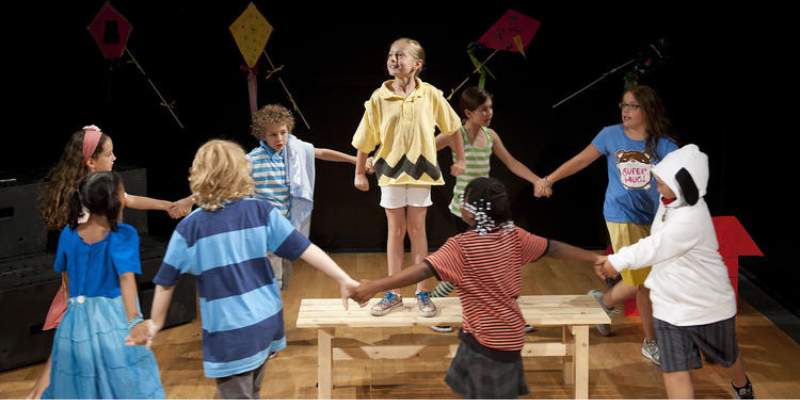
Doug Montoya, an actor in film, television, on stage, and an educator in the theater arts at The BoxABQ in Albuquerque, New Mexico. We wanted to know how to combine all that we have learned about communication to help the Kids Crew practice team building.
Doug led us through a workshop in improvisation also called improv. In a way, it’s like playing an imagination game with a group of people. But as we hear on the show, improv has rules and structure that make it even more fun to play together. We start with some word association: one person says a word, and each person says the first thing they think of when they hear the words from the people before them.
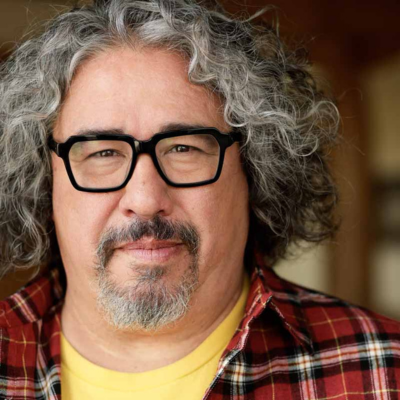
Activity: Trust Me, I'm the Expert
Improvisation is the act of doing or making something up as you go along without planning ahead of time. For this game, it’s important to follow the rules of Improv to create a good scene.
In this activity, you will act as though you are an expert about what you’re talking about, even though you’re just pretending.
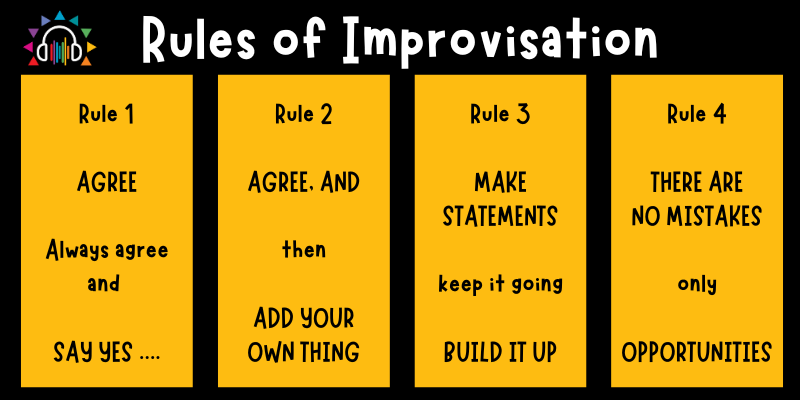
Then, Katie explains how games have been used for thousands of years in the Americas to help strengthen community ties, and forge relationships between families, even across long distances. We also hear an example of a hand clapping game, which came originally from Africa. When African people were brought to the Americas enslaved, hand clapping games were a way to preserve culture, and maintain joy in the harshest of conditions. These games are still played today!
Making Connections
Try this common game that helps people have fun and connect with others. To get the most out of playing, it’s important to cooperate, be flexible, and try out different things. With teamwork and collaboration, you can create a fun experience.
In the Andes mountains of Peru, the Quechuan people who are descended from the Inca, the chaquis are messengers who run messages between villages. Using a relay race system, one chacquis runs a message to the next chaquis, who continue to carry it even further to the next chacquis. In this way, messages can be sent over 1,000 miles. The chacquis are on a team, even though they are far apart, they are practicing teamwork.
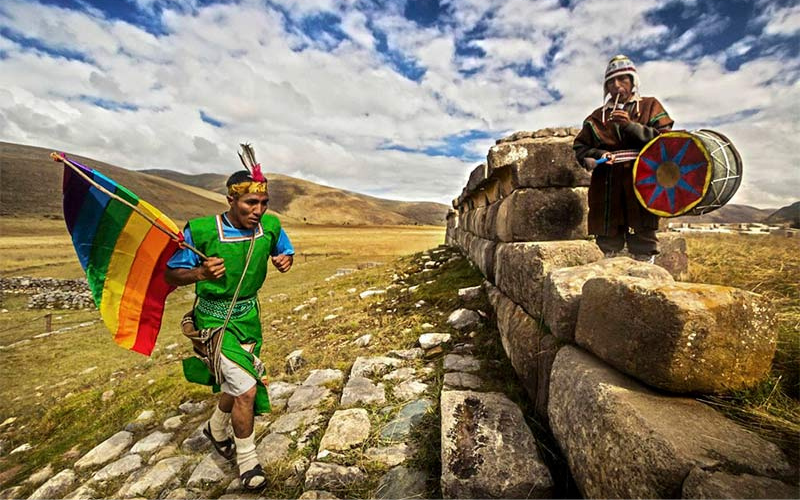
Play for a Purpose
Explore these questions: What are three different games and/or sports you like to play? What lessons did you learn, or what purpose did playing serve? What other skills or benefits do you gain? You may also include examples of games heard in the audio “Games We Play”, and using this information, see if you can complete the activity.
Doug’s improvisation workshop helped the Kids Crew be a better team. We hope you can hear that in future episodes of our show! In the meantime, we are going to keep on building our teams around us, and in doing so we are going to build a better world.
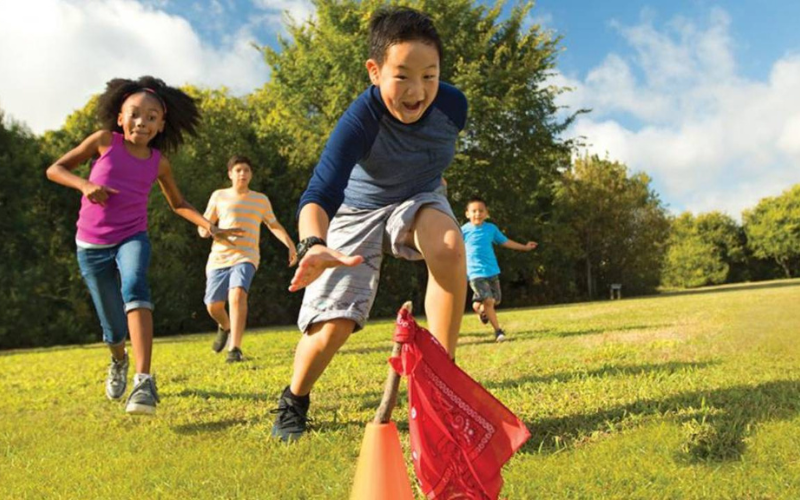
This show was produced by our Executive Producer, Katie Stone, with help from Senior Producer Christina Stella, and producer Eli Henley. Chad Scheer provided live engineering at Outpost Performance Space. Lorraine Archibald and Amber Arnett wrote our learning guides and activities. We also had support from 2024 Summer Intern Thaniel Lentz.
© 2024 The Children’s Hour Inc, All Rights Reserved
Playlist: Together We Can
| title | artist | album |
|---|---|---|
| Together Today | Nimo & Carlos Lopes | Together Today - Single |
| Fornax Dittie | Blue Dot Sessions | Fornax |
| All Together | Wookiefoot | Be Fearless and Play |
| Have A Little Fun With Me | Glen Phillips | For the Kids |
| Peas Corps | Podington Bear | Joyful |
| Amazing World | Tito Puente featuring Nestor Sanchez | Where in the World is Carmen Sandiego? |
| Team Work | Danny Quinn | Someone Else's Shoes: The Best Foot Forward Series |
| We're All in This Together | Jack Ingram | Live at Billy Bob's Texas: Jack Ingram |
| What's the Matter With the Team? | Ella Jenkins | Song Rhythms and Chants for the Dance With Ella Jenkins; Interviews With ''Dance People |
| On A Calm Sea | Benjamin Lee | single |
| I Wanna Play | Bill Harley | I Wanna Play |
| Lift Each Other Up | Suzanne Jamieson | Love Is... |
| Voices Arise Together (feat. Arun Gandhi, Dave Mason, Michael Hoppe & Rupam Sarmah) | One Little Finger Group | Arise Together |
| Waking With You | Crowander | Uplifting Funband |
| Let's Play | Raffi | Best of Raffi |

Together We Can
Learning Guide, Audio & Activities
Part one - The Art of Improv
Together We Can Part 1: The Art of Improv
Activity: Trust Me, I'm the Expert
Improvisation is the act of doing or making something up as you go along without planning ahead of time. For this game, it’s important to follow the rules of Improv to create a good scene.
In this activity, you will act as though you are an expert about what you’re talking about, even though you’re just pretending.
Part two - Staying Connected
Together We Can Part 2: Staying Connected
Making Connections
Try this common game that helps people have fun and connect with others. To get the most out of playing, it’s important to cooperate, be flexible, and try out different things. With teamwork and collaboration, you can create a fun experience.
Part Three - Community Building
Together We Can Part 3: Community Building
Play for a Purpose
Explore these questions: What are three different games and/or sports you like to play? What lessons did you learn, or what purpose did playing serve? What other skills or benefits do you gain? You may also include examples of games heard in the audio “Games We Play”, and using this information, see if you can complete the activity.
Thank you Sponsors
This program is made possible by funding from the National Endowment for the Humanities and the United We Stand Connecting Through Culture Initiative, and by the New Mexico Humanities Council. Any views, findings, conclusions, or recommendations expressed in this program do not necessarily represent those of the National Endowment for the Humanities or the New Mexico Humanities Council.













